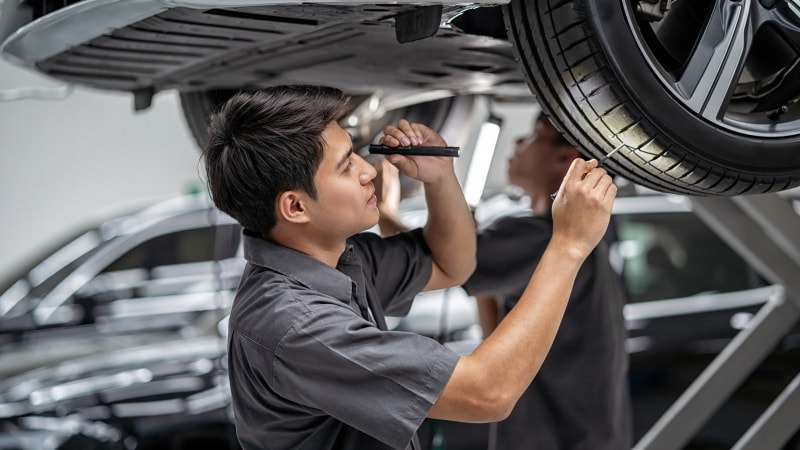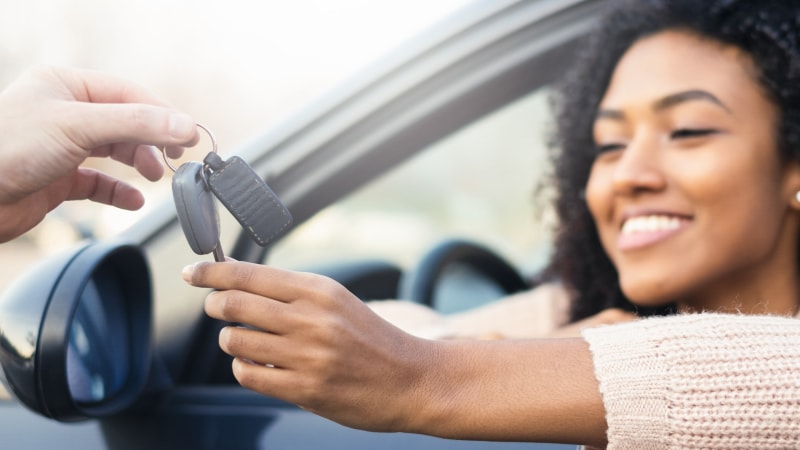Pre-purchase inspection: Car buyer's guide

Quick insights
- A pre-purchase inspection (PPI) is a third-party evaluation of a used car to identify potential issues.
- Because used cars may not come with warranties, a PPI can reveal hidden repairs or defects before you commit.
- It’s best to have the inspection done before buying the car, and if a seller won’t allow it, that’s a red flag.
When you buy a new car, you can generally feel confident about its working condition. After all, it’s just come off the assembly line. But when buying a used car, there’s a greater risk that your new-to-you auto may have some hidden or undisclosed issues. Even with the most honest intentions, sellers sometimes overlook potential flaws that others may notice. This is where a pre-purchase inspection can come in handy — to help ensure your prospective purchase doesn’t turn out to be a lemon.
What is a pre-purchase inspection?
A pre-purchase inspection (PPI) is an evaluation, typically conducted by a trusted mechanic or other third party, that assesses a used vehicle before purchase to identify any potential issues it may have. A PPI can often be an important step in the buying process as it helps minimize some of the potential risks considered inherent to buying used cars.
Why should I get a pre-purchase inspection?
Since used cars rarely come with a warranty, especially when buying from a private seller, a PPI can help provide much-needed clarity on a prospective vehicle purchase. This way, you can verify if the car really is as good as advertised or if it has potentially costly repairs in its future that you may want to steer clear of.
What gets inspected during a pre-purchase inspection?
Although there’s no established standard for a PPI, there are typically a few things most mechanics will inspect, including but not limited to:
- Cosmetics: A visual check of the car’s interior and exterior may reveal things to a professional that you may not have spotted initially, such as potential signs of corrosion or frame damage.
- Under the hood: Most mechanics will check under the hood to help ensure the engine and other major parts appear to be in decent condition and there aren’t any fluid leaks.
- Test drive: For a more thorough pre-purchase inspection, your mechanic may also run the engine or even take the car for a quick test drive to diagnose any issues with things like suspension, braking, tires, transmission and more.
When should I get a pre-purchase inspection?
As the name might already suggest, the best time to get a pre-purchase inspection is before you buy the car. Used car sales, especially between private parties, tend to be final and “as is.” For that reason, neglecting your due diligence before committing to the purchase may be a risky move. You may be able to tell the seller that your offer is contingent upon the vehicle passing a pre-purchase inspection. If the seller refuses this relatively simple and reasonable request, it may be a potential sign to walk away from the deal.
Where do I get a pre-purchase inspection?
A PPI can be conducted by most mechanics, and dealership service centers may also be willing to conduct one if the car you’re considering falls under the brands they service. Note that calling in advance to schedule the inspection may help you save some time.
Who pays for a pre-purchase inspection?
In most cases, the buyer is the party that initiates and pays for the PPI. Inspections tend to cost a couple of hundred dollars in most cases, though this may change depending on your locality as well as the make and model of the car. A PPI for sports cars and classic cars, for example, may cost more since it requires the mechanic to potentially possess more specialized knowledge.
In summary
Buying a car, whether new or used, is an investment. In the case of used cars, a pre-purchase inspection can help to safeguard that investment. Having a trusted professional look over the car you’re about to drive, possibly for several years to come, can help you avoid potential pitfalls with your purchase before it’s too late.



